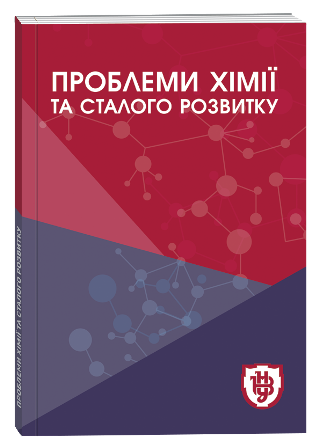THE ROLE OF ACADEMIC MOBILITY AS A TOOL FOR INCLUSIVE EDUCATION OF STUDENTS WITH DISABILITIES IN MEDICAL EDUCATIONAL INSTITUTIONS
DOI:
https://doi.org/10.32782/pcsd-2025-1-15Keywords:
academic mobility, higher education, students with disabilities, teachers, mobile educational environment, inclusive education, special educational needsAbstract
An organic component of modern curricula that reflect the correlation of academic life with the world of cultures, societies, and meanings in the global, changing space of higher education is the academic mobility of students with disabilities. The current agenda of higher medical education is saturated with a global trend aimed at strengthening integration for innovations as a property of the emergence of open systems, taking into account interaction in a heterogeneous environment. Academic mobility is now a context, principle, form, and mechanism of the educational policy of the state and university. It is summarized that the issue of ensuring academic mobility opportunities for students with disabilities is considered within the framework of a personality-oriented approach and appeals to the expansion of theoretical and practical experience necessary for application in future professional and educational activities, as well as for professional and personal development. It is emphasized that an important step towards ensuring academic mobility of students with disabilities is the use of information and communication technologies, computer learning (online courses and programs) in educational practice. Academic mobility is determined by the environment in which a student with special educational needs and disabilities is located, the system of social relations with society, built on the basis of subject-subject interaction, the goals of the subjects’ activities, and personal characteristics. The development of academic mobility in students with disabilities will contribute to their successful preparation for future employment and self-realization in the profession, and increase competitiveness. The specificity of ensuring academic mobility of students with disabilities in medical educational institutions lies in the need to take into account the fact that its development is influenced by objective and subjective factors. The objective factor complicating its organization is determined to be spatial and environmental conditions, the level of accessibility to all programs implemented by the higher education institution. Subjective factors include the individual picture of the student’s disability. It is generalized that ensuring academic mobility of students with disabilities in medical educational institutions is based on personnel, information, educational and methodological, organizational, material and technical, spatial, psychological and pedagogical resources of the mobile educational environment.
References
Величко Я. І. Організація міжнародної мобільності студентів ВНЗ. URL: https://api.dspace.khadi.kharkov.ua/server/api/core/bitstreams/a24a3619-5e84-4f94-af44-2a35b59c0970/content (дата звернення: 13.01.2025).
Гриньова М., Ніколенко О., Вотсон К., Зуєнко М., Когут І. Віртуальна академічна мобільність із застосуванням технологій COIL: розробка курсу та його оцінювання студентами ПНПУ імені В. Г. Короленка та Копенгагенського університету (Данія). Витоки педагогічної майстерності. 2024. Вип. 33. С. 59–65. DOI: https://doi.org/10.33989/2075-146x.2024.33.3099489.
Грищук Ю. В. Міжнародна академічна мобільність в Україні: проблеми та перспективи. Освітологічний дискурс. 2014. № 2 (6). С. 33–40. URL: https://elibrary.kubg.edu.ua/id/eprint/3875 (дата звернення: 13.09.2024).
Завгородня А. А. Академічна мобільність як засіб забезпечення якості професійної підготовки фахівців економічної галузі України. URL: https://lib.iitta.gov.ua/id/eprint/715121/1/2382.pdf (дата звернення: 10.01.2025).
Заячук Ю. Освітні програми ЄС та можливості для викладача українського університету. Український педагогічний журнал. 2021. № 2. С. 5–19. DOI: https://doi.org/10.32405/2411-1317-2021-2-5-1910.
Мартинюк А. П., Губіна А. М. Академічна мобільність студентів як вагома складова інтернаціоналізації освіти. Академічні студії. Серія «Педагогіка». 2024. Вип. 2. С. 35–43. DOI: https://doi.org/10.52726/as.pedagogy/2024.2.612.
Романинець М. Р. Академічна мобільність українського студентства в умовах глобалізованого простору: філософсько-правові аспекти. Вісник Національного університету «Львівська політехніка». Серія: Юридичні науки. 2019. Вип. 21. С. 77–83.
Черушева Г. Б., Колесник С. Г., Довбня С. О. Європейська та світова практика академічної мобільності для інноваційного розвитку освітнього простору України. Академічні візії. 2023. Вип. 17. DOI: http://dx.doi.org/10.5281/zenodo.7791200
Чимбай Л. Л., Попкова Л. В., Ханюк Т. О. Роль інтернаціоналізації системи вищої освіти України на шляху до Європейського Союзу. Освітня аналітика України. 2022. № 4 (20). С. 31–48.
Ян Ц., Яо С. Роль академічної мобільності студентів у підвищенні конкурентоспроможності закладів вищої освіти України. Педагогічна Академія: наукові записки. 2024. № 12. https://doi.org/10.5281/zenodo.14171878
Zadorina O., Hurskaya V., Sobolyeva S., Grekova L., Vasylyuk-Zaitseva S. The role of artificial intelligence in creation of future education: Possibilities and challenges. Futurity Education. 2024. Vol. 4(2). P. 163–185. DOI: https://doi.org/10.57125/FED.2024.06.25.09







